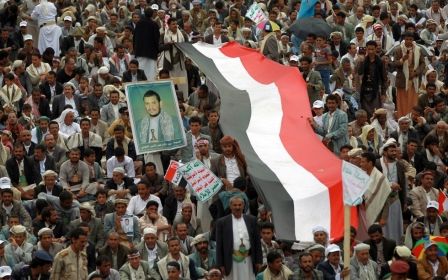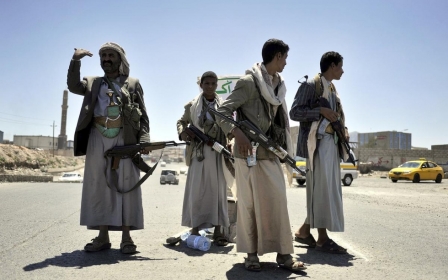Houthis reject new prime minister, call for fresh protests across Yemen

Houthi rebels rejected on Tuesday the announcement of a new prime minister in Yemen and called for protests to continue as the appointment had not been “agreed upon” by the various political groupings.
Ali Bukaiti, member of the Houthi political council, said they reject the naming of Ahmed Awad Mubarak as prime minister, according to the Yemen Post.
Mubarak was announced as the new premier earlier on Tuesday. He recently headed the National Dialogue Conference between the Sana'a government and the Houthi rebels.
Born in the southern Aden governorate, Mubarak is a professor at Sana’a University and also Maastricht University in Holland. He is best known for his work with the NDC and also his involvement in Yemen’s NGO sector.
A senior Houthi official had earlier told the Yemen Post the appointment was made by President Abdulrabu Hadi and “stressed” the rebel group “did not suggest or recommend” Mubarak.
The Yemeni daily reported earlier that a “top Islah party official” had said they would not oppose the appointment but said President Hadi “will be responsible for any failures of the next government”.
Yemen has been dogged by unrest since Shiite Houthis staged massive protests to demand the sacking of Prime Minister Mohammed Salem Basindwa's government.
Last month, the Houthis seized control of the capital Sana'a following three weeks of confrontations with army troops and police officers.
President Hadi signed a deal with the Houthi leadership last month aimed at ending the weeks-long political standoff.
The deal calls for the formation of a new government; the appointment of a nonpartisan prime minister; and the appointment of a Houthi adviser to the president.
New MEE newsletter: Jerusalem Dispatch
Sign up to get the latest insights and analysis on Israel-Palestine, alongside Turkey Unpacked and other MEE newsletters
Middle East Eye delivers independent and unrivalled coverage and analysis of the Middle East, North Africa and beyond. To learn more about republishing this content and the associated fees, please fill out this form. More about MEE can be found here.




